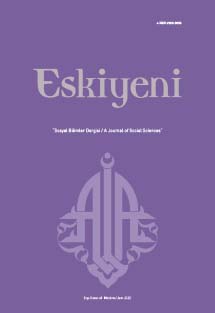Dijital Ebeveynlikte Dini Tutumlar Üzerine Nitel Bir Araştırma
A Qualitative Study on Religious Attitudes in Digital Parenting
Author(s): Nimet FerahSubject(s): Methodology and research technology, Psychology of Religion
Published by: Anadolu İlahiyat Akademisi
Keywords: Psychology of Religion; Digital Parenting; Religious Attitude; Digital Media; Family
Summary/Abstract: In today's world, the use of technology has created a new area of responsibility for parents. Digital media, which has entered our lives with the development of technology, has also influenced children born into the digital world, as in many areas. It is known that some harmful results occur when digital media is used in an uncontrolled and unconscious way. Digital parenting is a new conceptualization that can be summarized as parents protecting their children in the use of the internet and digital media, acting consciously against situations that may hinder their development and assuming the necessary parental roles. Digital madia use is open to education and discipline, especially for parent and children, due to the problems it causes. Studies on digital parenting are carried out in different areas in our country and the world. However, the subject’s religious attitude and behavior aspect has not been examined much with the practices of religious sciences. At this point, parents' religious attitudes about children's use of the internet and digital media is a problem that needs to be investigated. Religion is one of the most essential elements in life, especially in terms of directing, shaping and giving meaning to individual and family life. The study aims to determine parents’ religious attitudes and evaluations regarding their children's use of digital media. In this study, which aims to examine religious attitudes in digital parenting, semi-structured questions were asked to a total of 22 participants, 12 men, 10 women, living in different cities of Turkey, who were reached between December 2020 and January 2023 by purposive sampling method in accordance with the qualitative research design. The data obtained were divided into themes and described by content analysis method. As a result, it has been revealed by the findings that religiously anxious, fatalistic, conscious-controlled and reactionary-prohibitive behaviors occur in digital parenting. In addition, it has been determined that parents, especially those with religious sensitivities, may have religious concerns about their children's internet and social media use, and accordingly their behaviors and attitudes may differ.
Journal: Eskiyeni
- Issue Year: 2023
- Issue No: 49
- Page Range: 393-416
- Page Count: 25
- Language: Turkish

